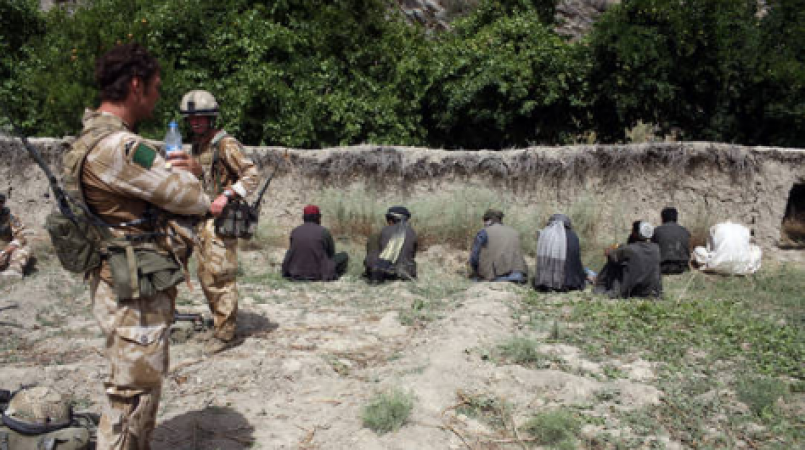
London: Lawyers for the victims' families have reportedly told a UK investigative panel that British Special Air Services (SAS) troops may have killed dozens of unarmed civilians in Afghanistan between 2010 and 2013 as part of an alleged policy of eliminating "all fighting-age males" while conducting home raids, the Guardian newspaper reported on Sunday.
More than 80 Afghans died as a result of at least 30 suspicious incidents, according to new claims made by the London-based law firm Leigh Day. A public investigation into alleged war crimes committed by UK forces in Afghanistan was started in December under the direction of Lord Justice Haddon-Cave, who in March requested testimony from anyone who was interested.
During their raids, SAS soldiers allegedly targeted young Afghan men, "regardless of the threat they posed." Leigh Day's filing claims that one of the soldiers "personally killed" 35 Afghans during a six-month deployment there.
Typically, the killings were justified by assertions that the Afghans were armed; however, in some cases, there were more fatalities from gunfire than there were weapons. Lawyers for the Afghan families claimed that senior officers voiced concerns at the time about UK troops displaying "a casual disregard for life," but military authorities responded with a "wide-ranging, multilayered, and years-long cover-up."
Also Read: Turkish Parliament Speaker Shatters Illusions: Swedish NATO Membership Remains a Distant Mirage
During the UK's deployments to Helmand province, the raids on Afghan compounds were conducted in an effort to find Taliban fighters, frequently at night, according to the Guardian. According to earlier reports, one SAS unit may have killed 54 people, but the families' solicitors now assert that more troops were involved over a longer period of time than previously believed. According to the attorneys, there is "credible evidence of a widespread and systematic pattern of unlawful and extrajudicial killings."
Also Read: Baltimore mass shooting leaves 28 injured and 2 dead
2019 saw the conclusion of a military police investigation after no proof of criminal wrongdoing, according to UK defence officials. The special forces headquarters, despite being told by investigators not to remove any information from their servers, allegedly deleted "an unknown quantity of data" just before police arrived to look over potential evidence, according to the attorneys.